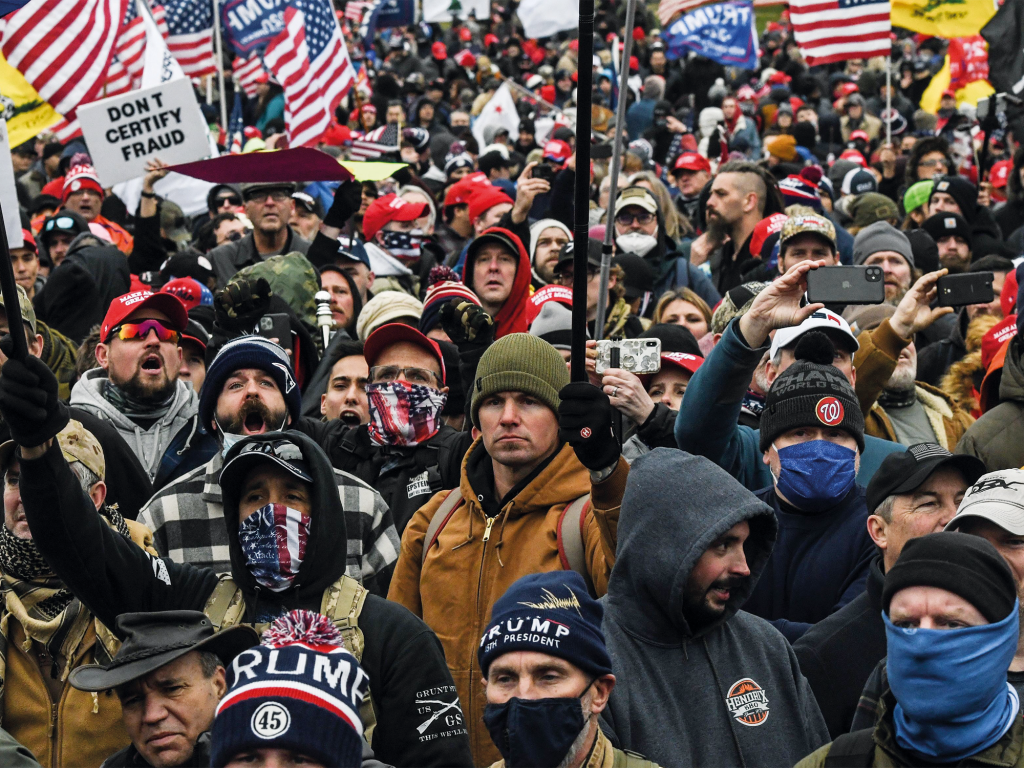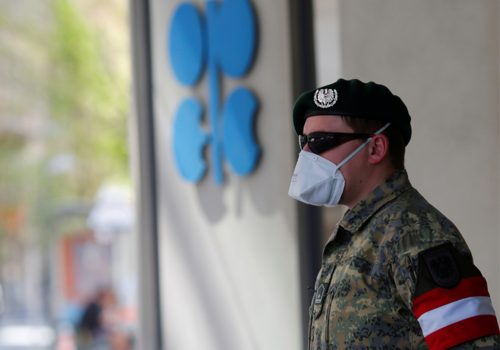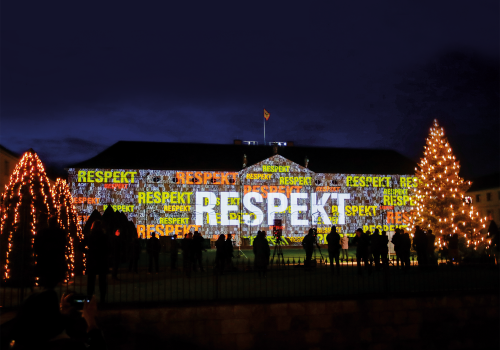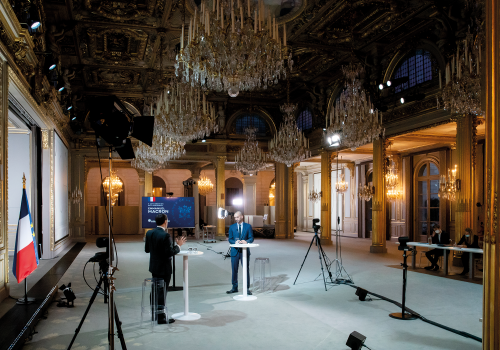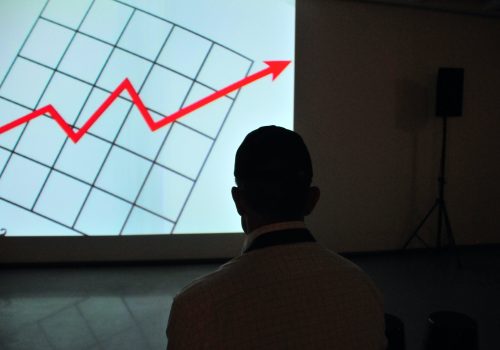Building transparency and accountability online and around the world to promote free and open societies.
The Atlantic Council’s Digital Forensic Research Lab (DFRLab) has revolutionized the study of information to promote transparency and accountability online and around the world. DFRLab is known for its work to distinguish how information and technology shape geopolitics, define disinformation and online harms, document human rights abuses, and bridge the collective responsibility for accurate information among government, media, tech, and civil society.
For DFRLab, everything boils down to a singular effort: To promote objective fact as a foundation of free and open societies in a hyperconnected age.
2020 was always going to be a defining year in that effort, even before the COVID-19 pandemic spurred a parallel “infodemic” of rampant public health misinformation.
A basic truth throughout DFRLab’s work in 2020 was that online harms have real world consequences. Disinformation led American democracy to the brink, complicated the pandemic response, exacerbated geopolitics with a new form of great power competition, and mainstreamed conspiracy and extremist movements. These trends played out both on a global scale and on a personal level for everyone.
Open-source research and reporting
In 2020, DFRLab published comprehensive studies of Iran’s strategic approach to malign influence and China’s use of discourse power to further the party-state’s core interests. In each case, the autocracies prioritized domestic, regional, and then international efforts.
In March, when the World Health Organization declared the COVID-19 outbreak a pandemic, the lab surged its research capacity around the world, publishing more than seventy-five case studies over the course of the year.
Throughout the US elections, the DFRLab took a comprehensive approach to monitoring vulnerabilities in election integrity while expanding efforts focused on compounding crisis events. In September, the lab launched the Foreign Interference Attribution Tracker, an interactive tool to help understand claims of foreign interference, set attribution standards, and provide an independent and reliable record of foreign interference in the 2020 US election. The DFRLab also teamed with three partners to form the Election Integrity Partnership, a collaboration to monitor the Internet for mis- and disinformation aimed at undermining the results and integrity of the 2020 election. It also partnered with Georgetown University’s Institute for Constitutional Advocacy and Protection to monitor the nexus between online engagement and increasing domestic violent extremism.
Building a community of diverse #DigitalSherlocks
Even when the pandemic prevented working together in person, DFRLab’s global community of #DigitalSherlocks continued to connect online. The 360/Digital Sherlocks program was the DFRLab’s most ambitious capacity-building cohort yet, with more than four hundred participants representing more than seventy countries.
In a new online video series, the DFRLab hosted leading voices grappling with the biggest challenges in government, technology, and media to talk over a socially distanced cup of coffee. #CoffeeBreaks included conversations with human rights icon and Filipino journalist Maria Ressa, Vice President of the European Commission for Values and Transparency Věra Jourová, and renowned Zimbabwean investigative journalist Hopewell Chin’ono.
Vision for 2021
While challenges are rapidly evolving, the Digital Forensic Research Lab’s mission and remit remain constant. In the coming year, the lab will continue to contribute original findings and have a unique opportunity to shape the agenda for the coming years across a wide range of challenges related to democracy and technology at home and around the world.
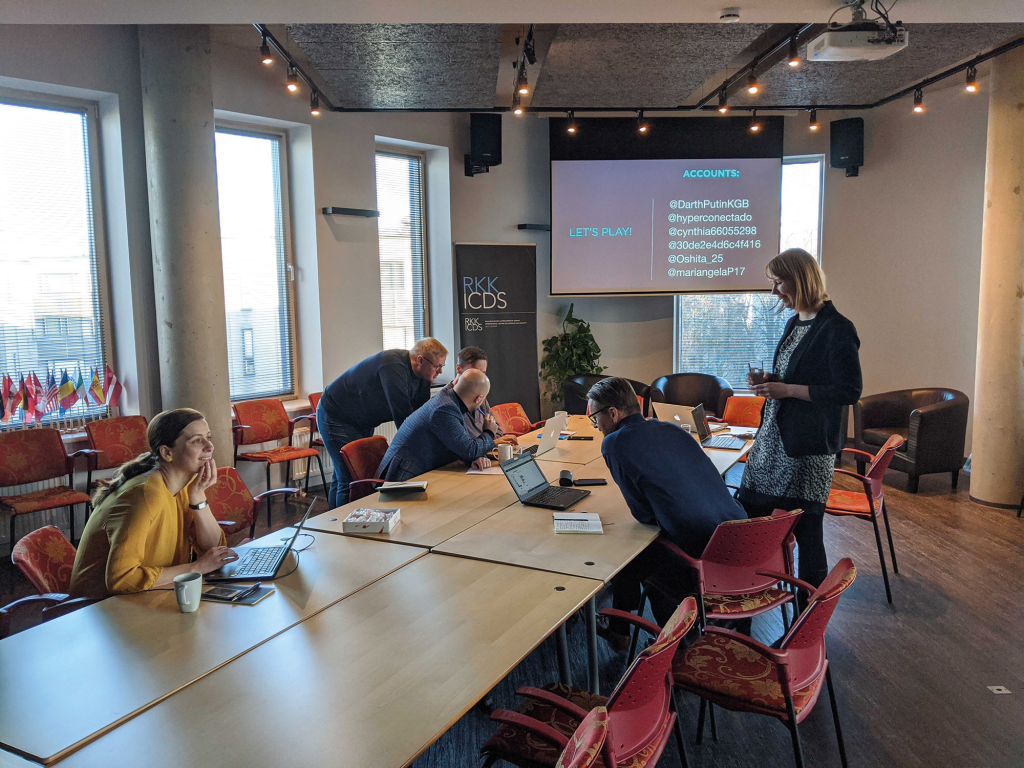
Next
Read the full report
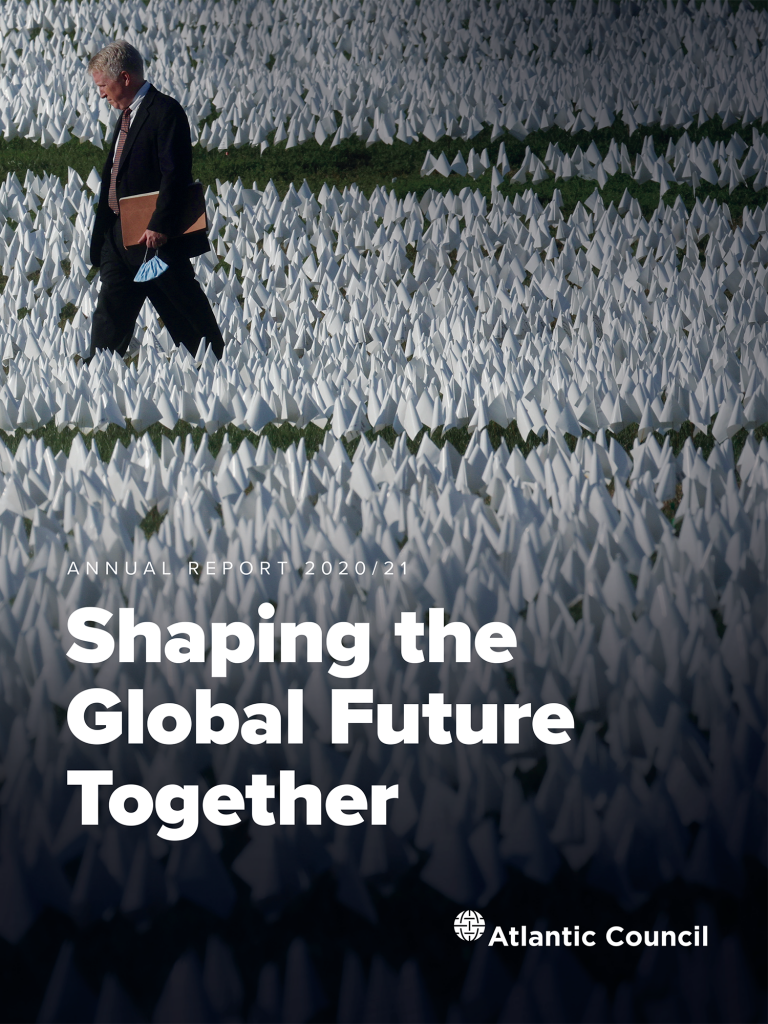
Annual Report 2020/2021
As we celebrate the 60th anniversary of our founding, the challenges we face
are daunting, but the Atlantic Council has responded with innovative and
consequential work. Here’s how we are working together to shape the global
future.
Image: Rioters gathered at the Capitol on January 6, 2021, in protest of the certification of Joe Biden’s electoral victory. STEPHANIE KEITH/REUTERS
